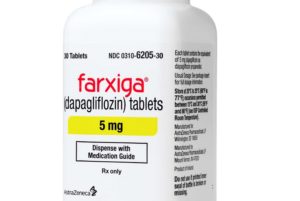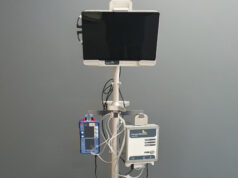
The US Food and Drug Administration (FDA) has approved Farxiga (dapaglifozin, AstraZeneca) to reduce the risk of hospitalisation for heart failure in adults with type 2 diabetes and established cardiovascular disease (CVD) or multiple cardiovascular (CV) risk factors. The approval follows the update to the marketing authorisation in the EU in August 2019, and the drug is also under regulatory review in China, with a decision anticipated in the first half of 2020. In addition, the FDA recently granted fast-track designation for the development of Farxiga to reduce the risk of CV death, or the worsening of heart failure with reduced ejection fraction (HFrEF) or preserved ejection fracture (HEpEF) based on the Phase III trials, DAPA-HF and DELIVER.
A press release from AstraZeneca outlines that the approval is based on results from the DECLARE-TIMI 58 CV outcomes trial (CVOT), which it describes as the largest sodium-glucose cotransporter 2 (SGLT2) inhibitor CVOT conducted to date to evaluate type 2 diabetes patients with multiple CV risk factors or established CV disease.
The AstraZeneca-sponsored, Phase III, randomised, double-blinded, placebo-controlled, multicentre trial was designed to evaluate the effect of Farxiga compared with placebo on CV outcomes in adults with type 2 diabetes at risk of CV events, including patients with multiple CV risk factors or established CV disease. It also assessed key renal secondary endpoints. The full results of the DECLARE-TIMI 58 trial were published in The New England Journal of Medicine in January 2019.
Ruud Dobber, executive vice president of the BioPharmaceuticals Business Unit, says in the company statement: “Farxiga is the first SGLT2 inhibitor approved in the US to reduce the risk of hospitalisation for heart failure in type 2 diabetes patients with established cardiovascular disease or multiple cardiovascular risk factors. This is promising news for the 30 million people living with type 2 diabetes in the US, as heart failure is one of the earliest cardiovascular complications for them, before heart attack or stroke. Farxiga now offers the opportunity for physicians to act sooner and reduce the risk of hospitalization for heart failure.”
AstraZeneca point out that Farxiga is not indicated to reduce the risk of heart failure, CV death or kidney disease. It is indicated as an adjunct to diet and exercise to improve glycaemic control in adults with type 2 diabetes mellitus, and to reduce the risk of hospitalisation for heart failure in adults with type 2 diabetes mellitus and established cardiovascular disease or multiple cardiovascular risk factors. Farxiga is not recommended for patients with type 1 diabetes mellitus or for the treatment of diabetic ketoacidosis.












